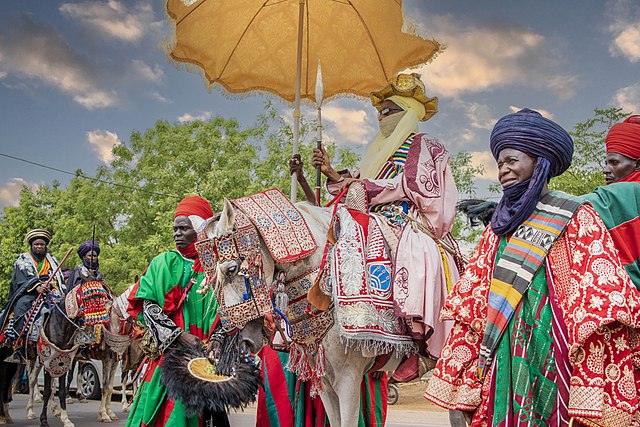Climate change in Nigeria
Climate change in Nigeria is evident from temperature increase, rainfall variability. It is also reflected in drought, desertification, rising sea levels, erosion, floods, thunderstorms, bush fires, landslides, land degradation, more frequent, extreme weather conditions and loss of biodiversity. All of which continues to negatively affect human and animal life and also the ecosystems in Nigeria. Although, depending on the location, regions experience climate change with significant higher temperatures during the dry seasons while rainfalls during rainy seasons help keep the temperature at milder levels. The effects of climate change prompted the World Meteorological Organization, in its 40th Executive Council 1988, to establish a new international scientific assessment panel to be called the International Panel on Climate Change (IPCC). The 2007 IPCC's fourth and final Assessment Report (AR4) revealed that there is a considerable threat of climate change that requires urgent global attention. The report further attributed the present global warming to largely anthropogenic practices. The Earth is almost at a point of no return as it faces environmental threats which include atmospheric and marine pollution, global warming, ozone depletion, the dangers of pollution by nuclear and other hazardous substances, and the extinction of various wildlife species.

Improper disposure of plastics and used nylon bags in a drainage system
Agriculture is one of the sectors affected by climate change in Nigeria (street vendor in Lagos)
Protesters in Port Harcourt joining the Global Climate March in the lead-up to the 2015 United Nations Climate Change Conference.
Image: Nigeria veg 1979
Jigawa State is one of the 36 states of Nigeria, located in the northern region of the country. Created on 27 August 1991, under the General Ibrahim Babangida administration who announced the creation of nine additional states in the country bringing the total number of states then to thirty. The announcement was given a legal backing through the; State Creation and Transitional Provisions Decree No. 37 of 1991. Jigawa State was a part of Kano State and was located in the northeastern-most region of Kano State, and it forms part of Nigeria's national border with the Republic of Niger. The state capital and largest city is Dutse. Jigawa state has 27 local governments
Emir of Dutse, Nuhu Muhammad-Sanusi, during a Durbar festival in 2022
Government house Dutse
British support has provided the Jigawa State School of Midwifery in northern Nigeria with essential equipment as well as helping the teachers develop the curriculum and get accreditation for the programme.
Emirs palace street Dutse








